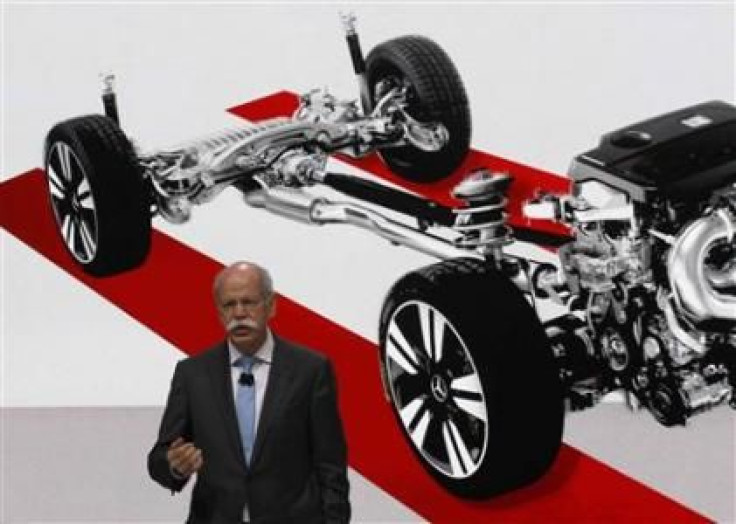83rd Geneva Car Show: Auto Executives Give Grim Forecast For Europe's Auto Sector, Saying It Will Take Years For EU Sales To Recover From Crisis

Automakers aren’t betting that Europe will drive economic growth anytime soon.
According to executives preparing for the 83rd Geneva Car Show, which opens to the public on Thursday, the euro zone debt crisis will weigh on European Union annual auto sales for years to come.
Here’s an indication of how bad it is: Auto sales in the 27-member European Union hit a 23-year low in January, with new-vehicle registrations falling 8.5 percent, according to the European Automobile Manufacturer’s Association. Commercial sales fell more than 10 percent in the first month of the year. February didn’t offer much relief as sales continued their double-digit declines. Last year, EU auto sales fell 8.2 percent, hitting a 17-year low.
"We believe that the underlying problem in Europe, which is mainly about debt, will persist for at least five more years," said Bayerische Motoren Werke AG (ETR:BMW) Chief Executive Norbert Reithofer, according to Reuters.
Ford Motor Co. (NYSE:F), which sells the popular Focus compact and Transit Connect panel van, echoed the sentiment. Stephen Odell, Ford's executive vice president and president of the company's operations in Europe, the Middle East and Africa, said Europe's economic woes will continue to drive down sales for the indefinite near future. Ford maintained its 13 million to 14 million total EU sales for the year, down from the 17 million to 18 million units it sold the before the 2008/09 global economic downturn took hold.
Fitch Ratings Inc. issued a grim forecast in late January suggesting that it could be more than 10 years before Europe recovers, if it recovers at all.
Morgan Stanley (NYSE:MS) on Tuesday lowered its forecast to a 6 percent decline in European auto sales for the year, down from a previous 4 percent decline, saying the weakness in the auto sector in southern Europe was spreading northward.
© Copyright IBTimes 2024. All rights reserved.












